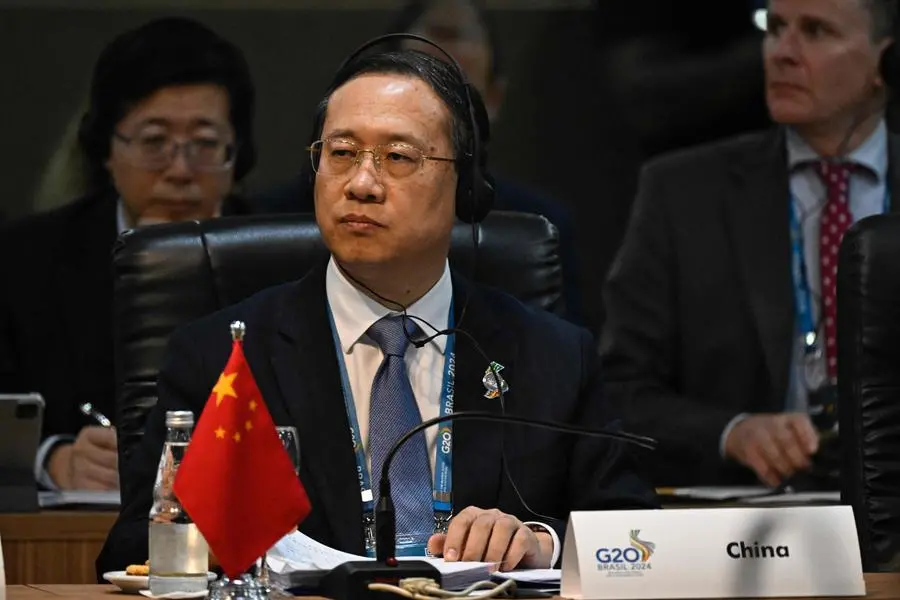PHOTO
US Treasury Secretary Janet Yellen is expected to raise the issue of Chinese industrial overcapacity with G20 partners next week, a senior Treasury official said ahead of a high-level gathering in Brazil.
Yellen is set to visit Sao Paulo from Tuesday to Thursday, to participate in the Group of 20 leading economies' finance minister and central bank governor meetings.
Following the talks, she will also visit Chile in a bid to deepen US ties with the critical-minerals-rich nation.
In Brazil, besides furthering efforts to strengthen the global economy, the US Treasury chief is set to discuss Chinese overcapacity with various partners, the senior official told reporters on condition of anonymity.
The concern is that China could seek to alleviate excess capacity by dumping goods on global markets.
But Yellen may not raise this matter in a formal G20 session, the official said, adding that: "It's a topic that that she is both interested in and worried about."
The aim is to ensure that "domestic supply and demand are moving together" and "unsustainable overcapacity" is not building up in a way that could trigger major spillovers globally, the official noted.
In a statement, the Treasury Department said that in Brazil, Yellen would also stress the importance of efforts to evolve multilateral development banks, fight climate change and deal with sovereign debt distress.
She is set to reaffirm US commitment to supporting Ukraine as well, and in denying Russia access to funds and weapons, two years since Moscow's invasion.
Another issue is addressing the consequences of conflict in the Middle East, while countering "destabilizing regional actors," said the Treasury.
After her trip to Brazil, Yellen will spend two days in Chile, a supplier of critical minerals.
Further collaboration will benefit both countries, said the Treasury, noting that both sides have a free trade agreement and tax treaty.
This means Chile could be in a position to benefit from incentives under President Joe Biden's landmark climate action plan, such as those involving the electric vehicle supply chain.
Chile's Atacama desert holds one of the world's largest reserves of lithium, and demand for the critical mineral has surged as the world seeks to move away from fossil fuels to curb global warming.





















